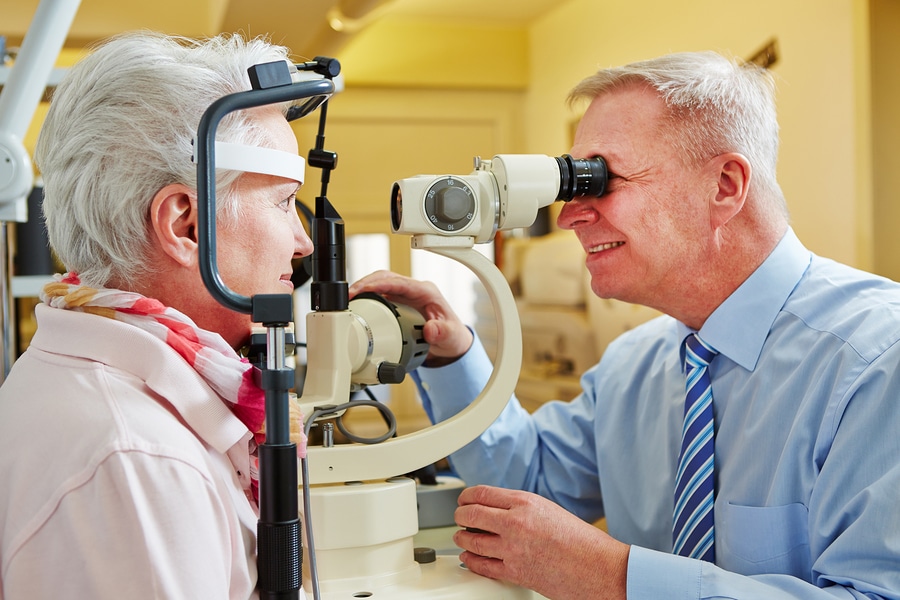Diabetes is a multi-faceted disease that can affect many parts of a person’s body, causing complications. One common complication of diabetes is diabetic eye disease. Although most people with diabetes will only experience minor eye problems, it does increase the risk of more serious issues, including blindness. The good news is that with proper eye care, older adults with diabetes can avoid having serious problems or treat more severe conditions to minimize vision loss.
Elder Care in Oakwood GA: Diabetic Eye DiseaseWhat is Diabetic Eye Disease?
Diabetic eye disease doesn’t refer to just one eye condition. Instead, it’s a group of conditions that commonly affect people with diabetes. Some of the eye conditions are:
- Diabetic Retinopathy: Diabetic retinopathy is the condition that most commonly leads to vision loss in people with diabetes. It damages the blood vessels in the retina, the part of the eye that picks up light and sends signals to the brain.
- Diabetic Macular Edema (DME): This condition affects a part of the retina called the macula. Edema is a word that refers to swelling, so DME is a swelling of the macula. DME usually happens in people who have signs of diabetic retinopathy.
- Glaucoma: Glaucoma causes damage to the optic nerve, which is the pathway along which signals to the brain travel. There are different kinds of glaucoma and the symptoms a person has depends on which kind they have. People with diabetes are at double the risk for developing glaucoma.
- Cataracts: Cataracts occur when the lens of a person’s eye becomes clouded, blocking out light. People with diabetes usually get cataracts at an earlier age and are up to five times more likely to develop them.
Protecting the Eyes of Diabetics.
There are several steps that you can take to help your aging relative with diabetes avoid serious eye problems, including:
- Eye Exams: Diabetics should see an eye doctor at least annually. The exam should include having the eyes dilated.
- Control Blood Sugar: Keeping blood sugar levels under control can reduce the risk of developing diabetic eye disease.
- Control High Blood Pressure: Having high blood pressure can make some kinds of diabetic eye disease worse.
- Quit Smoking.
Elder care can assist older adults with diabetes to manage the condition to lessen the chances of developing eye complications. Elder care providers can remind seniors to test their blood sugar and take medications. Elder care providers can also prepare healthy meals that help to control blood sugar and high blood pressure. If the older adult is unable to drive, an elder care provider can transport them to medical appointments, including for eye exams.
The staff at Home Care Matters is available to talk with you and your family about all of your needs. Home Care Matters is a home care agency providing quality and affordable elder care in Oakwood, GA and the surrounding areas. Call (678) 828-2195 for more information.
Sources
https://nei.nih.gov/health/diabetic/retinopathy
http://www.diabetes.org/living-with-diabetes/complications/eye-complications/?loc=lwd-slabnav
http://www.diabetes.org/living-with-diabetes/complications/eye-complications/eye-care.html
Valerie has the unique experience with home care as she has experienced it from both ends of the spectrum, as a caregiver and as needing care herself as a cancer survivor. Valerie says, “Taking care of someone you love is a physically, mentally and demanding labor of love.Taking care of my mom was the hardest thing I have ever done. It has given me an insight and perspective not many people understand unless you are doing it or have done it.I loved taking care of my mom.I love helping others take care of their love ones too.And now that I’ve been sick, it’s given me a whole new level of empathy and understanding for those who are sick and need help.”
Valerie’s schedule varies daily, but she loves visiting with our clients, families, caregivers, our network partners and being in the office.Says Valerie, “Every day is different, but I wake up excited about what we do, inspired by our team, clients and caregivers.I strive to be a resource to the community.I love my team and I love what we do every day. I like to think my mom would be proud.”
You can reach Valerie by email (Valerie@homecarematters.com) or in our office (770.965.4004).
- How In-Home Alzheimer’s Care Helps Your Parent Stay Safe and Comfortable - December 26, 2025
- After the Fall: How Home Care Helps Seniors Recover Safely at Home - December 19, 2025
- Supporting Seniors with Memory Challenges Through Compassionate Senior Home Care - December 12, 2025

